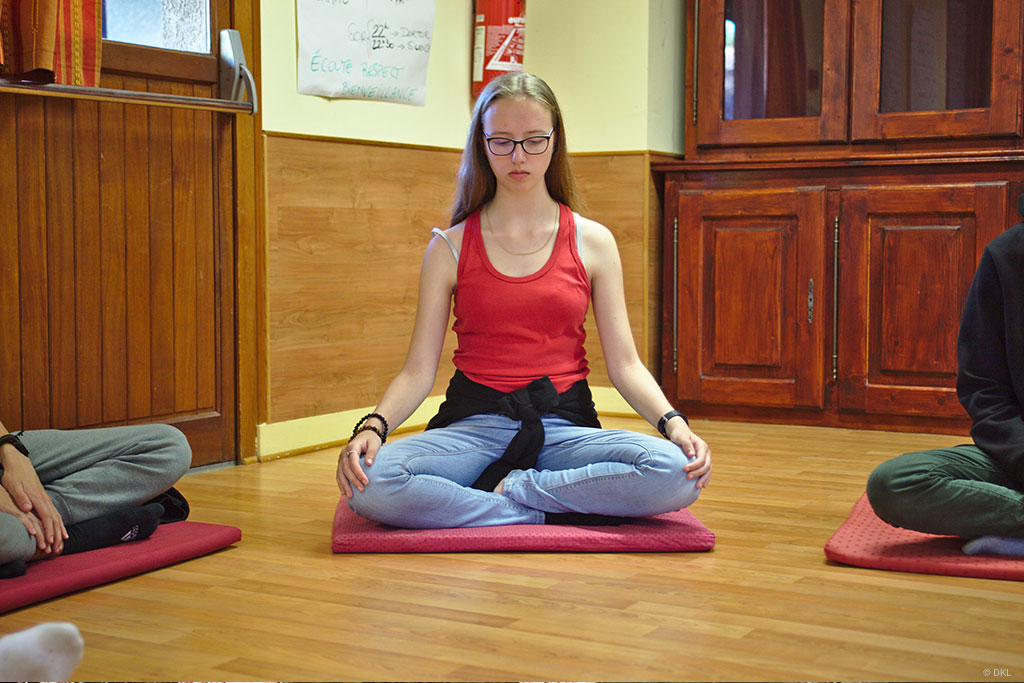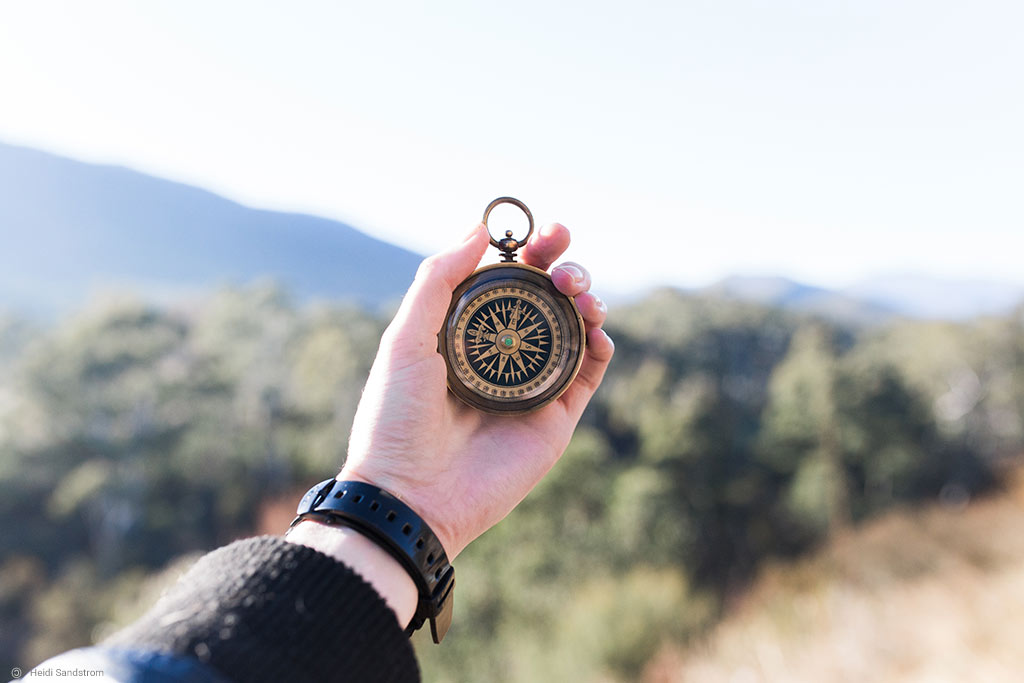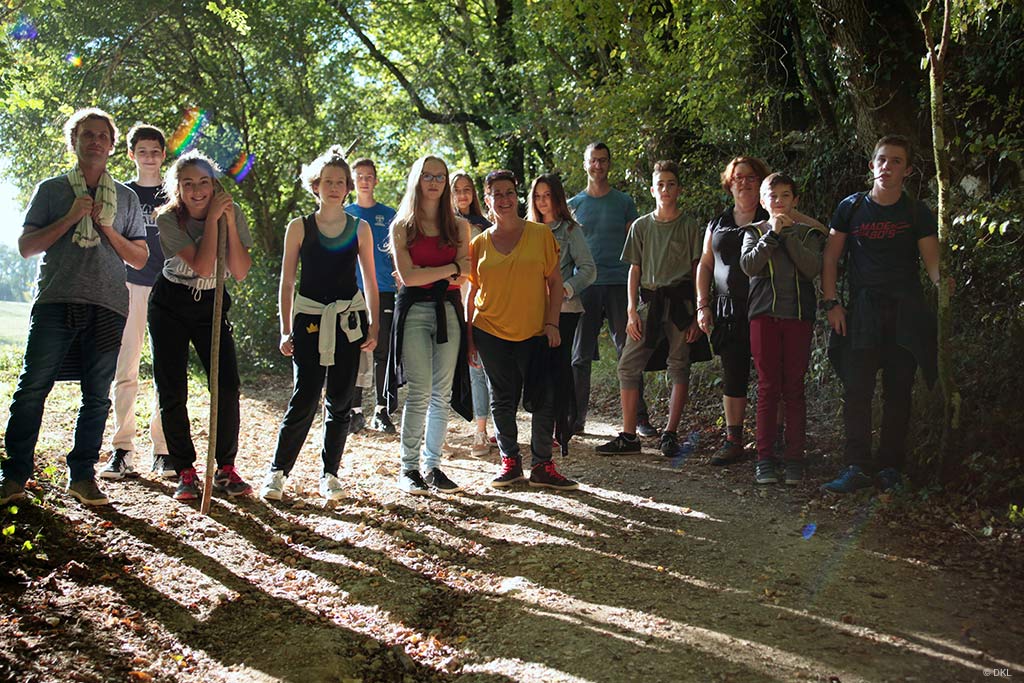Self-confidence does not arise by decree; it must be cultivated. It depends on us finding the appropriate resources for learning how to make life choices. (This article discusses: Living Adolescence: A Path of Autonomy).
Dissipating Confusion: Understanding Our Functioning
When we understand what we experience, then our confusion dissipates. Habitually, we do not notice confusion, and yet because of it, we don’t know how to react. We have trouble making sense of things. When we’re young, we have a lot of energy. We naturally follow our feelings and go towards what seems interesting to us, what makes us feel good. Or, we let ourselves be influenced by someone who we are in awe of. If we look closely, everyone functions like this. In addition, if we observe the situations and people around us, we will discover the causes in the development of each person’s life; we will be able to see how they construct their life. This process of exploration allows us to develop greater confidence in ourselves.
Let’s consider an example. Sometimes people give us advice. They explain how to do one thing and how to avoid another. Even if their advice is correct, when we apply it, it won’t necessarily give us a hundred percent perfect results.
Why is this? Because we haven’t developed our own discernment. For example, someone explains to us how to plant flowers or make a recipe or get to the next level of a video game. We follow their instructions as indicated, and we apply each step right up until the end of the process. Well, sometimes we won’t achieve the intended results, and other times it works, even though both times we followed their advice to the letter. We need to understand what is happening and why.
If we carry out our own research, we learn, ourselves, the processes at work, so other people’s help and advice is complementary to our own knowledge. We know why their advice works sometimes and not others. Our own investigation becomes the cause for developing self-confidence, as it is through true understanding that we develop this confidence.
Sometimes this confidence runs out because we receive different, even contradictory, information, or we understand things after the fact, or our own feelings create confusion. Then, we need to cultivate our own vision of things.
Listening to Our Feelings
There are two aspects to this subject: external things and us with the confidence that we have in ourselves. In general, we pay attention to our own feelings, the impulses and judgments we have based on the sensations we experience. But if we understand the causes that generate these feelings, a new vision emerges. Understanding where our feelings come from and why they arise nourishes confidence. Here, we are talking about the states of mind due to certain circumstances we encounter that lead to different feelings. We believe these diverse feelings, they influence us, and then we act.
It’s actually very easy to understand. If we develop a mentality of helping others and of mutual support and we observe our own functioning, this allows us to identify the causes of the sensations we experience and of our feelings. We will see that various emotions are at the origin of this.
If we are open to the situation that arises and are aware of what is occurring within us, we will be able to make contact with and understand these different emotional happenings. In the beginning, being aware of our emotions is a little uncomfortable. This is the moment to explore in the way explained here and to see where the discomfort comes from. If we study this subject, we will understand how this discomfort arises based on our own emotions: pride, jealousy, and anger.
When we discover these emotions within ourselves, we will progressively understand the causes and conditions for these states in all people. Knowing oneself allows one to know the world. This understanding frees us from confusion and from a kind of distraction; it liberates us from the background noise of the mind.
Inner Exploration
When we talk about researching, it is not a question of modifying things, but rather gaining understanding. We discover our way of functioning. The goal is not to change the mind; these modifications come later. What we discover is not mean to push us to want to change too quickly. Change comes naturally.
Our research is a search for reality, for what is truly there. The benefits become evident; when we see the causes and conditions at play, we are no longer manipulated and influenced by our own feelings. Take an example: sometimes, we feel tension within ourselves. We decide to try to see the cause. Maybe the cause is that we don’t accept someone else’s attitude or that we’re not satisfied with what they’ve said. Maybe there is attachment or a will for something to happen a certain way.
Or maybe the tension is occurring because we are rejecting something; it’s like an irritation we haven’t seen. Then, we need to look at why we are rejecting the situation. Maybe our reaction is connected to a form of pride. Pride leads us to be critical sometimes, and criticism is linked with jealousy, for even when we love someone, we can criticize and reject them out of jealousy. Our inner exploration allows us to see these various aspects playing out within ourselves with precision.
The essential point is to seek out and find all of this ourselves.
For example, our mom might ask us to wash the dishes. The first reaction is to want to say no, which is natural because we don’t necessarily feel like washing the dishes. If we look closer, we’ll see it’s our pride telling us not to do it.
However, if we don’t take the time to look within, anger or discontent takes over. This comes from the fact that we don’t see the pride, in this case, at work, so confusion takes over. We get angry, and we refuse to wash the dishes, and a whole series of chain reactions follows. And yet, if we ask ourselves why our first reaction is to say no, we will probably see that it’s our pride. We don’t want to feel bossed around by our mother! The idea isn’t to avoid pride, but to recognize it, to clearly perceive the situation and what follows. That is the research we need to conduct.
Step by Step…Confidence Emerges
Beyond this, it’s up to us to decide the direction we wish to take; there is no predetermined path. We can choose to follow our pride or to do the dishes. But if we don’t see the pride at work, anger and discontent can arise, and then we’re stuck in confusion. If we decide to do the dishes, another kind of pride may arise, but at least there’s no anger anymore. Pride isn’t negative in and of itself.
When we talk about self-confidence, it is a question of being able to see the functioning of our mind and how our feelings influence the situations in our lives. What colors our mind and where does it lead us? What are the causes of our feelings? Asking ourselves these questions and leading a reflection to answer them helps us manage the situations we encounter.
Using this method helps us communicate better, as our communication becomes authentic. Seeing the functioning of the mind, we are able to exchange with others in an appropriate way, and we reach a better outcome. There are different kinds of communication. With family and friends, it’s fairly natural. If we understand the mind’s functioning and its reactions, our communication becomes better adapted, more understandable, and more helpful. There are fewer errors, and our relationships are more harmonious. Not a harmony created to get what we want, but a lasting harmony in existence, a more just vision of things and a good comprehension of each individual. When we see their flaws and qualities, we understand the causes for them. This makes for communication and relationships that can last the length of our existence, and it is good for every aspect of life.
Your opinions, feedback based on experience, and comments interest us! Don’t hesitate! (fil de conversation ci-dessous)







